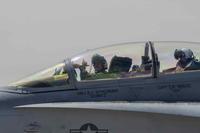If you're the kind of person who gets creeped out by foreigners getting into space (and that means you, Rummy), do not read the 2004 Space Security Index. Hot off the virtual presses, the Index has in it just about everything you need to know about the state of the world's civilian and military space efforts. The bits about international orbital plans are sure to send the collective mind of the spacewar crowd into hyperdrive.
Hot off the virtual presses, the Index has in it just about everything you need to know about the state of the world's civilian and military space efforts. The bits about international orbital plans are sure to send the collective mind of the spacewar crowd into hyperdrive.
A total of 44 states have accessed space through an independent launch capability or the launch capabilities of others. In the 1990s, the rate of increase in this capability doubled from just less than one to just less than two per year, mostly for civil space programs. Surrey Satellite Technology Ltd. of the UK has enabled seven countries to build their first civil satellite over the last 12 years.
2004 saw this trend toward greater civil space access continuing, with Iran announcing plans to launch a satellite in 2005, and South Korea and Russia signing an agreement on the joint development of a launch vehicle planned for use in 2007...
Overall, a total of 28 civil assets, including satellites and human spaceflights, were launched in 2004, in addition to five launches involving the deployment of seven global utility satellites
A total of 26 military space assets were launched in 2004, including 21 by the US and Russia, and 12 by other states. China reportedly launched three military reconnaissance satellites in 2004. In December 2004, France launched four 120-kilogram Essaim signals intelligence satellites. The Israeli Air Force changed its name to the Israeli Air and Space Force in 2004, while the launch of its OFEQ-6 reconnaissance satellite failed in its third stage in September. South Korea announced the creation of an Air Force Space Command, and Thailand signed a deal with a French company for production of its first intelligence and defense satellite...
Now, before everyone gets too frazzled, keep in mind that America still has the pimp hand in space.
The US currently accounts for 95 percent of total global military space expenditures and maintains approximately 135 operational military-related satellites over half of all military satellites in orbit.








